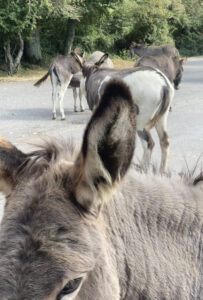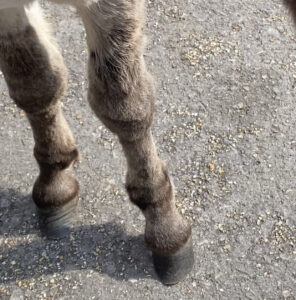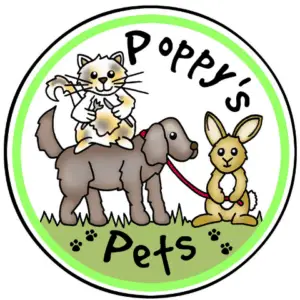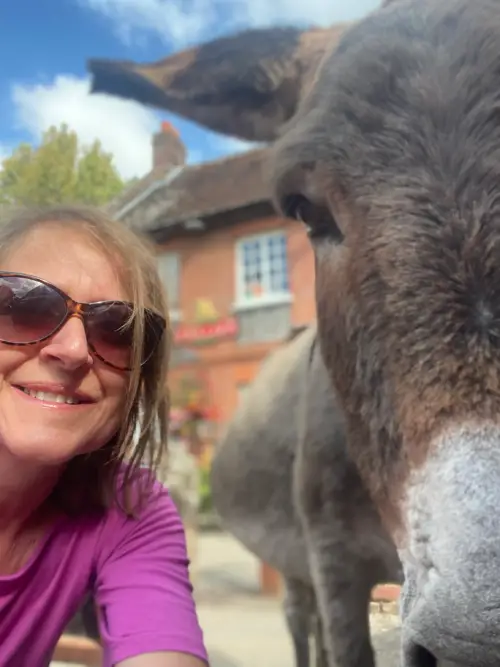Miranda and Emma were mother and daughter and our donkeys in the 1970’s. Caring for your first donkey and taking on the responsibility can be a rewarding experience but requires full-time dedication to their care, well-being and needs.
Donkeys are known for their gentle, quirky nature, and remarkable intelligence, making them excellent companions for those willing to invest time and effort into their needs.
Donkeys require the correct care to meet their well-being, health and happiness. In this article we shall delve briefly into essential tips for beginners about looking after your first donkey, covering everything from feeding and shelter to health maintenance.
Before considering the different specifics of donkey care, it’s essential to understand that donkeys have unique needs and characteristics that distinguish them from equines like horses. Donkeys are hardy animals known for their resilience, but they have some specific requirements you should know. Proper care begins with the fundamentals, and the first step in caring for your donkey is ensuring they have a safe, escape-proof, comfortable and dry living environment.
After reading this article you may feel unsure about adopting a donkey and the responsibilities and whether you can manage with care. Therefore, consider visiting a care farm. Lucky Tails, as an example, offers Donkey Walking Experiences which include feeding and grooming under supervision, combined with an insight into donkey care.
Watch the Video: Visiting a care farm in Warwickshire and donkey walking
But first, let’s look at the points of owning a donkey:
- A donkey needs a companion so this will double your outgoings
- Without a companion to bond with, a donkey will succumb to loneliness
- Donkeys live to about 30 to 60+ years old. What care can you provide if it outlives you? What about your finances or living arrangements in the future?
- A donkey braying can be loud, and their nature mischievous – consider proximity to other homes
- There are different sizes and breeds of donkey
- You need at least an acre of land, a hardstanding area, a sand school and a stable
- Speak to people experienced with donkeys
- Research The Consumers Act 2015 if buying a donkey from a dealer
- Donkeys must have a passport
- Donkeys must be microchipped
- Donkeys born after 1 October 2018 must have a microchip before a passport can be issued
Shopping list:
- Amazon: Hanging feeder duo game for a donkey, horse, goat
- Amazon: Donkey fun with Traffic cone game
- VioVet: Colourful Hoof pick under £2
- Waldhausen Grooming Kit
- Amazon: Ruggles Turnout rug
- Amazon: Ruggles Stable rugs
- Etsy’s SignaRoo: Stable personalised donkey name plaque
- Amazon: Ruggles fly mask
- Cambridgeshire competition venue: Grey Fern Tack Sales
Shelter and housing for donkeys

Understanding shelter needs – donkeys need protection from extreme weather conditions such as intense heat, cold, wind, and rain. A sturdy three-sided shelter or full-closed stable provides the ideal haven for your donkey. Ensure your donkey has substantial straw bedding.
Space, hardstanding and fencing – two companion donkeys require a spacious indoor environment with a solid concrete base. Adjacent to its stable, you must provide a hardstanding area. The solid floor protects your donkey’s feet against frost, snow, mud and accumulation of water. Donkeys are not used to wet climates so the need for dry ground or a sand base is vital as a preventative measure against foot diseases. Because donkeys are used to drier climates, feet can suffer in wetter conditions.
Surrounding the stabling, any outdoor space, including paddocks, must have donkey-proof fencing to keep both safe and prevent them from wandering. Ensure your donkeys have ample space to move around and graze.
Pet theft is a concern so consider security measures to keep your donkeys safe.
Feeding your donkeys
Basic diet – donkeys are grazing herbivores. Teeth are large with a flat surface and perfect for tearing and chewing. Their diet should consist of good-quality barley straw, regular fresh water, and access to pasture when available. They do love apples, carrots, pears, bananas and turnips though!
However, a donkey will consume bracken if foraging food is in poor supply and quality. Bracken contains toxic substances and other foods should not be fed to your donkey either.
- Mouldy food
- Leeks
- Onions
- Garlic
- Potatoes
- Brassica
Grass or rich hay can cause weight gain because of its high-calorie content and should be eaten in moderation.
Instead, ensure your first donkey has access to frequent quantities of low-energy, high-fibre feed such as good quality barley whilst remembering to limit grass. Barley straw is healthy and enjoyed by a donkey as the central part of its diet.
Special dietary considerations – discuss dietary specifics with a veterinarian, as donkeys may have unique dietary needs based on age, activity level, and overall health. Because too much hay, grass and haylage cause weight gain they should be used as a top-up feed only.
Chaff feed is a combination of hay with or without straw suited to donkeys with dental issues or minimal teeth – the fibres are shorter, and easier to chew.
Other special dietary requirements may come into effect if your donkey is under or overweight, which is briefly discussed in another section of this article.
Grooming and hygiene

Hoof Care – expect to use a farrier every 6 to 10 weeks. A farrier will trim the hoof wall and maintain the foot. Removing debris and dirt from a donkey’s foot is necessary and a task an owner can perform.
A donkey can develop foot problems if in contact with wet, damp surfaces, causing health issues that may require veterinary intervention:
- Thrush – keeping a donkey on wet ground can cause infection, affecting the frog area of the foot and leading to a bad smell. A preventative measure is to keep your donkey in the dry and maintain health care, incorporating observation of the feet
- Laminitis – diet is vital to prevent this disease. Rich food is one cause of laminitis, or pregnancy or infection. This must be regarded as a veterinary emergency because the disease severely affects and destroys the toe bone in the hoof. Initial identification of laminitis can be if your donkey avoids walking, pulses around the fetlock, and lays down more than usual. If diagnosed with this disease, ensure your donkey has stable rest, stop activity, and provide refreshments
- Foot abscess – this disease requires veterinary intervention. Tetanus is known as lockjaw; keeping up to date with boosters is necessary. An infected wound gets into the white line and widens, and debris can build up. An abscess can also develop in the foot area and is painful because of infection and pus. A vet will treat the condition by draining.
Coat Care – brushes and tools used for a donkey are the same as equipment for a horse or pony.
A dandy brush or currycomb made with plastic, rubber or metal are designed to remove debris and hard mud from the coat. A body brush is recommended for sensitive body parts like the face, neck and stomach. To reduce costs, grooming kits are available with all accessories needed.
Maintaining a grooming routine keeps your donkey’s coat healthy, helps with protection from flies, and regulates body temperature.
Expect your donkey’s coat to be thick during winter months with shredding in the spring, then after August, there will be the gradual re-emergence of a thicker coat ready for the colder climate.
Healthcare and vaccinations
Routine Veterinary Care – find a veterinarian with experience in treating donkeys. Regular check-ups, vaccinations, and worming are essential to your donkey’s care. Annual dental checkups from a qualified equine dental technician is another part of your responsibility.
A donkey has a primary vaccination followed by annual boosters, protecting it from equine flu and tetanus.
Parasite Control – like other animals, worming should be administered every six weeks, with your vet deciding on the appropriate treatment. Lack of worming treatment can cause colic, a disease that can be fatal without treatment. Not all parasites are within the body – bot flies may be present around the legs, and you should take veterinary advice for preventative treatments.
Related equine articles:
- Friendly equestrian competition venue in Cambridgeshire
- Care for your donkey after your death
- The Microchip – the company without additional costs
Social and mental stimulation
Companionship – donkeys are social animals and often thrive in the company of another donkey in its environment. Without the companionship of its kind, it can lead to loneliness, bouts of depression, vocalisation, or weight loss. A donkey needs another donkey to bond with.
Mental Stimulation – donkeys enjoy toys and will play for hours to prevent boredom. Games need not be expensive either.
- An old football
- Rubber tyre
- Empty bucket
- Wellington boots
- A pile of dirt to run up and down on or roll in
- Foraging for treats
- Thick knotted rope for tug of war between donkeys
Common health issues and signs
Recognising Illness – common health issues are lameness, colic, dental problems, or weight issues.
- Colic – the disease comes in different guises and occurs in the gastrointestinal tract. It can be painful – even worms can cause blockage in the intestine, so preventative treatment for parasites is necessary. Veterinarian intervention is needed
- Lameness – another reason why farrier appointments must be a part of your donkey’s health care is because wrong-fit shoes or lack of foot care can lead to lameness
Donkeys are scored by body condition to determine whether they are under or overweight. This method is hands-on method to determine fat and muscle on your donkey. The correct weight of a donkey depends on the breed but here is a guideline:
- Adult donkeys should weigh 100kg to 500kg
- Miniature donkeys are about 144kg
- A standard-sized donkey should weigh approximately 165kg
Well-being monitoring – like any pet, monitoring your donkey’s health is essential.
- Be observant of faeces – what is the consistency and is your donkey toileting enough?
- Is your donkey drinking and eating?
- Does your donkey need an insect repellent or fly mask when grazing?
- Is your donkey getting enough exercise?
- Is your donkey coat dry? If so, its coat needs grooming
- Are buckets and troughs clean and free from dirt and bacteria?
- Use the body conditioning hands-on test
Weight loss – if your donkey is underweight, a veterinary assessment is necessary to eliminate any underlying issues. Dental issues, age-related, loneliness, worming, or grief following the death of a companion donkey are common problems. It’s worth noting that sub-standard feed can cause weight loss; your donkey will refuse to eat low-quality feed.
Your veterinarian can advise you on the best diet to help your donkey gain weight, or any treatment if sickness is the cause. Never overfeed an underweight donkey because it may cause an upset tummy. Specialised feeds are available to help a donkey gain weight but these must be introduced into the diet gradually.
For an underweight (or elderly) donkey, investing in a rug will help keep your donkey warmer during colder climates indoors or out, combined with protection from weather conditions. However, check your donkey’s body beneath the rug for sores or lesions from rubbing if used regularly.
Overweight – it is evident that avoiding sweet treats is vital. Cereal-based feeds and grass are other foods for an overweight donkey to avoid. Keep your donkey in a bare paddock or sand-based area. Create exercise tasks by placing water buckets and feeders away from a stable to encourage daytime movement.
In another article, we shall look at different feeds recommended for the under or overweight donkey.
Emergency preparedness – preparing for emergencies must be factored into a care plan. We know donkeys can live to around 40+ (Bubbles, a famous donkey, lived to 64) so what plans have you prepared if it outlives you? Have you organised backup help for your donkey if you are unwell? Do you have transport and the means to board your donkey if you need to take it to a vet? Have you bought insurance for health or any donkey-related damage for third parties? Have you calculated your finances for unexpected expenditures or inflation in the future? Depending on your location, stables, fencing, or ground, can succumb to gales, storms, floods and fallen trees causing severe damage. Combined with insurance and repairs, your donkey may require temporary housing in a livery.
Related questions:
Can you foster a donkey?
Flicka Foundation and The Donkey Sanctuary are two homes that offer a fostering opportunity. Flicka wants foster homes in Cornwall and Devon but invites enquiries from afield.
Unlike fostering a cat or dog, fostering for The Donkey Sanctuary means you are obligated to pay for feed, bedding, health and dental care, and farrier. It’s strongly suggested you invest in third-party insurance and include cover for veterinary bills.
One point I like with The Donkey Sanctuary is the training and it’s free.
You must have stabling, hardstanding, a paddock and secure fencing. And expect to foster a pair of donkeys unless you have one in need of a companion.
Donkey retirement home: what if I die first?
Never assume you will outlive any pet. Making provisions for their future, especially in old age when medical issues are more likely to occur and costs for medication and veterinary services increase. These points must be considered.
Usually, you are expected to leave a monetary value in your will. It’s worth noting that the money bequeathed may not be allocated to your donkey but to overall care including staffing, feed, and repairs.
An example of a donkey retirement home is Farmersfield Home-Rest for Elderly Donkeys. Always research, look for reviews and consider visiting potential homes before you commit.
How much does it cost to have a donkey cremated in the UK?
Resting Pets offers cremation services, including equine. Again, research and read reviews before committing. The following are points to consider, including putting money aside. Animals do not necessarily live to old age; being prepared is better.
- Individual cremation – ashes are returned in a willow basket or wooden casket with a plaque. Cost: £525 to £850
- Individual cremation with token ashes – a small amount of ashes are returned in a willow basket or wooden casket; the rest are scattered and buried at Wood Farm. Cost: £425 to £675
- Communal cremation without ashes – cremation is with other animals at another site. Cost: £235 to £345
- Removing a shoe or trimming a lock from the mane or tail is free
- Your donkey can be collected for £1 per mile
- Secondary staff for collection is from £50 if access is difficult
- Euthanasia is offered in a private meadow or at your premises by your vet
- Resting Pets will liaise with your veterinary practice
The above from Resting Pets gives you an idea of expectations. Prices are correct September 2023.
Key Takeaways:
- You’ll need two donkeys for companionship, which doubles time, finances and commitment
- Before purchasing a donkey, consider adopting or fostering from a charity. This will free up space for another donkey in need. You’ll receive professional and correct guidance towards everything needed to care for your donkeys
- Whether you adopt or foster, expect high start-up costs (stabling, hardstanding, fencing, food etc)
- Feed costs will undoubtedly increase year-on-year
- Regulations are that your donkey requires a passport
- Your donkey must be vaccinated and microchip
- You need an equine veterinarian for your donkey
- Do you have transport to transport your donkey from its previous seller, a charity or to a vet
Caring for your first donkey is a fulfilling journey that requires patience, knowledge, and a deep bond with your four-legged friend. As a beginner, you can ensure that your donkey leads a happy and healthy life by providing proper shelter, a balanced diet, regular grooming, healthcare, social interaction, and a watchful eye for potential health issues. Remember, each donkey has a unique personality and needs, so pay attention to their preferences and build a strong, loving relationship based on trust and respect.
Our YouTube channel contains helpful information designed to help you and your pets.
Disclaimer:
I am not a veterinary professional; therefore, if you are worried about your donkey, please consult an equine veterinarian. Please contact a sanctuary or a crematorium directly regarding fostering or adopting for up-to-date cremation details.
We were the owners of mother and daughter donkeys, Miranda and Emma.

